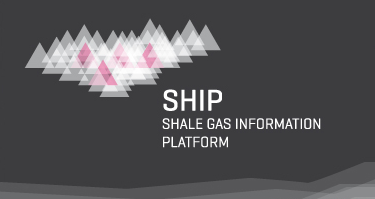A short summary of “Constraints on Upward Migration of Hydraulic Fracturing Fluid and Brine"
Author: Bernd Wiese
Centre for Geological Storage, GFZ German Research Centre for Geosciences
Published: December 12, 2013
This paper by Flewelling & Sharma (2013) analyzes some general geological settings and their implications for fluid migration. The analysis is based on plausibility considerations. A central consideration is that high vertical permeabilities are correlated with low overpressure at reservoir depth because the pressure would have dissipated in the past. A high overpressure can only develop with low overburden permeability. This results in a low upward flux of saline groundwater under natural conditions, which is empirically proven since shallow aquifers generally show low salinity.
The authors cite studies that claim hydraulic fracturing does not create connections to shallow freshwater aquifers, because the short duration of overpressure does not induce relevant fluid flow. On a longer timescale, the authors imply that well operation causes a net volume reduction, which in turn reduces the deep pressure such that upward fluid flow cannot be expected.
The paper focuses on general geological settings, which are plausibly discussed. Since the conclusions are formulated in a very general form, the paper does not cover geological settings that show deviations from their general considerations. Such specific non-general conditions could include, for example, small basins with significant topography, hydraulic systems that are not in long-term equilibrium, special local geological features, or fluid convection that may be thermally induced.
Reference
Flewelling, S. A. & M. Sharma, 2013. “Constraints on Upward Migration of Hydraulic Fracturing Fluid and Brine." Groundwater, DOI: 10.1111/gwat.12095
Related Literature
Myers, T., 2012. "Potential Contaminant Pathways from Hydraulically Fractured Shale to Aquifers", Groundwater, 50 (6), 872-882
Myers, T., 2012. “Potential Contaminant Pathways from Hydraulically Fractured Shale Aquifers,” Discussion by Saiers, J.E. & Barth, E., Groundwater, 50 (6), 826-828
Myers, T., 2013. "Potential Contaminant Pathways from Hydraulically Fractured Shale to Aquifers" Author's Reply, Groundwater, 51 (3), 319-321
Rozell, D.J., Reaven, S.J., 2012. "Water Pollution Risk Associated with Natural Gas Extraction from the Marcellus Shale", Risk Analysis, 32 (8), 1382-1393
Warner, N.R., Jackson, R.B., Darrah, T.H., Osborn, S.G., Down, A., Zhao, K., White, A., Vengosh, A., 2012. "Geochemical evidence for possible natural migration of Marcellus Formation brine to shallow aquifers in Pennsylvania", PNAS, 109 (30)





